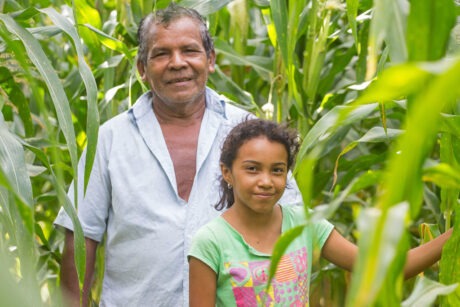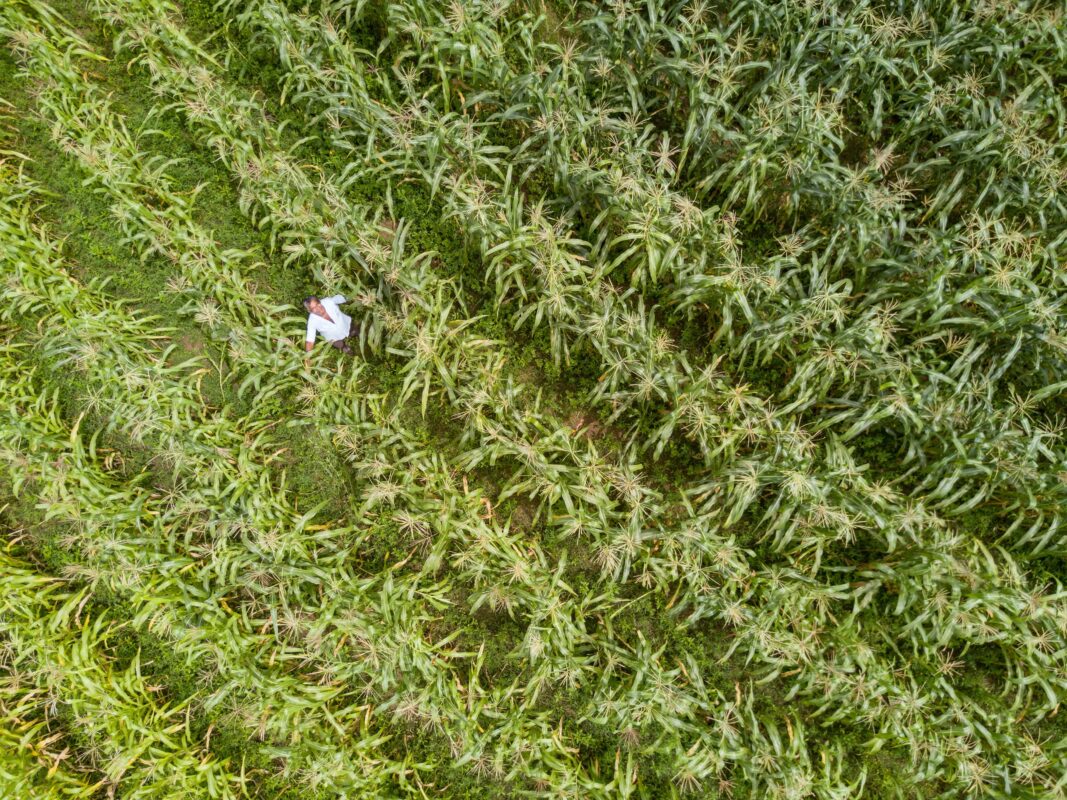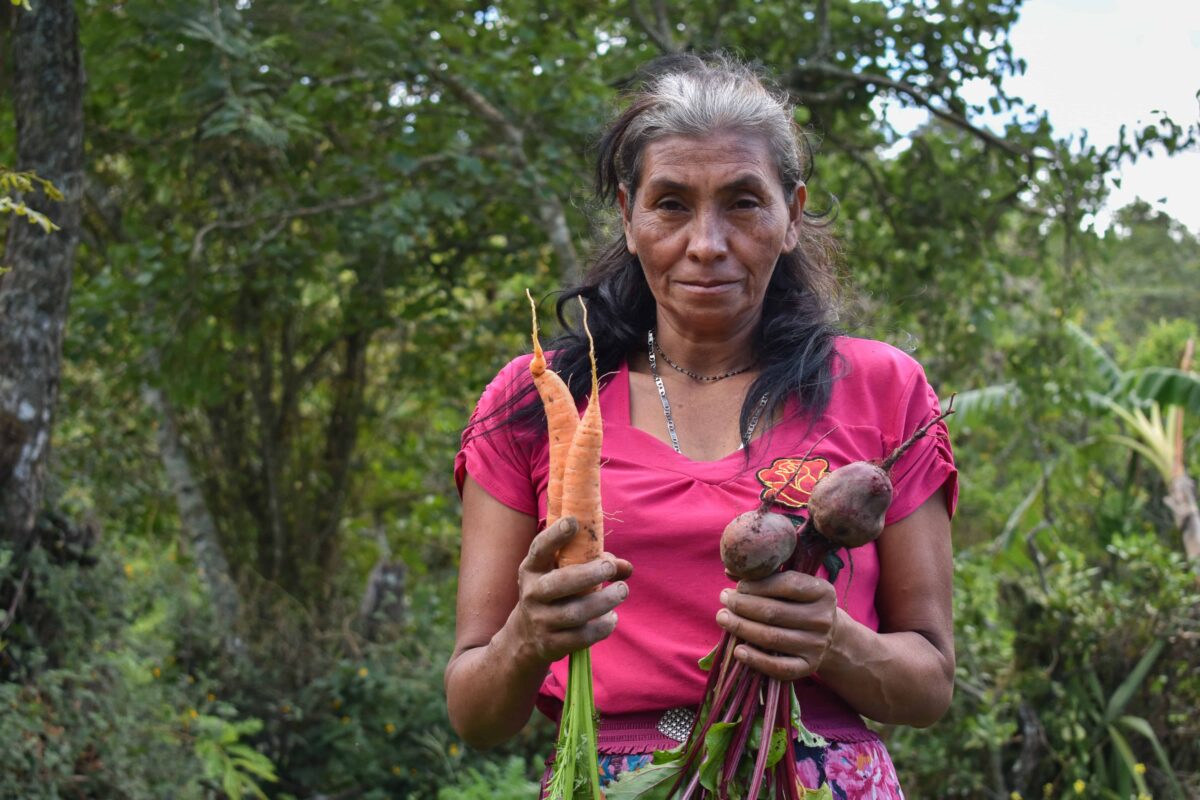El Paraiso, HondurasA group of riders make their way to the remote community of Navijupe, their horses and mules slowly navigating the roads that are badly damaged by the extreme rains in this region of Honduras. It takes about two hours for them to reach their destination, which is home to some 1,400 residents.
These riders, or “jinetes” in Spanish, make the journey from San Lucas, El Paraíso, to the isolated town with the goal of improving health for families facing poor household sanitation and malnutrition. According to the World Bank, 58 percent of children younger than age 5 in the region suffer from chronic malnutrition.
The jinetes’ bright yellow shirts identify them as nutrition promoters working with a five-year project in southern Honduras called the Dry Corridor Alliance – PROSASUR, which is implemented by Creative Associates International as a partner of INVEST-Honduras.
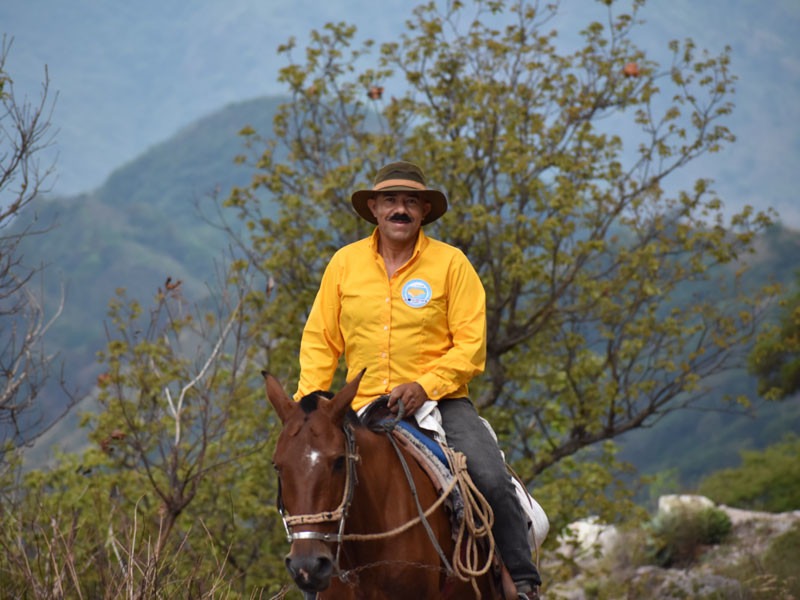
The project aims to reach 6,000 poor and extreme poor households in Honduras’ Dry Corridor, so named for the long periods of drought that follow heavy rains annually. Working in these rural areas often requires project staff to make long drives in pick-up trucks or on motorcycles over rugged roads, and in some cases, takes boat trips or treks on foot.
The trip to Navijupe calls for a different mode of transportation.
“Navijupe is a particularly isolated community, and we had to get creative,” says Chief of Party Carlos Ruiz. “But when we realized the severity of the health situation there, we knew that this was a community that needed support, particularly young children for whom poor nutrition can have lifelong consequences. It’s for these human reasons that we’re committed to overcoming any challenge.”
Household changes for community health
Dry Corridor Alliance – PROSASUR will work with families, community leaders and local volunteers to improve food security and nutrition in Navijupe, where most households live off an income of $1 per day. The project will also promote health and nutrition education, and the families most in need will receive assistance in household water and sanitation projects, such as replacing dirt floors with concrete or improving latrines.
Project technician Luis González says for now, the jinetes are beginning by getting the community familiar with the project and identifying the households that require the most support, prioritizing those with children under 2 years old or pregnant women. But the local team is already seeing opportunities to help families diversify their diets and make small changes that could have a big impact.
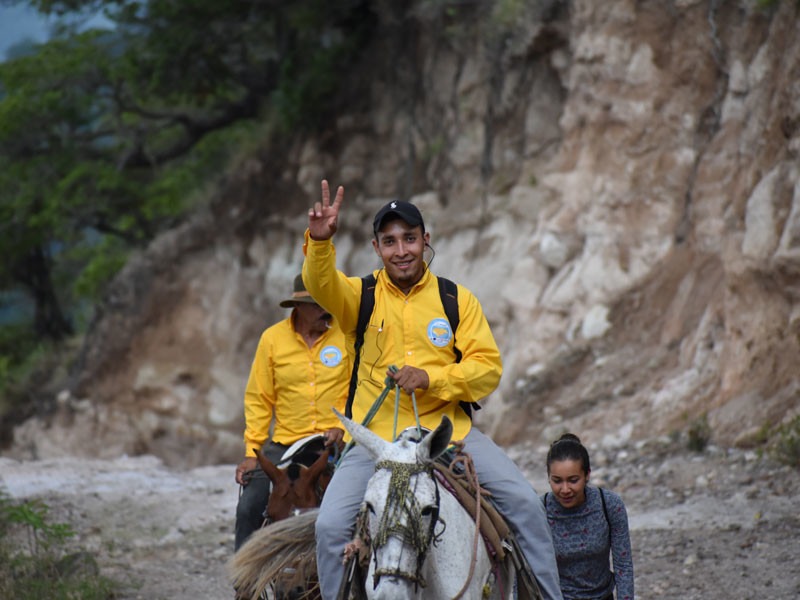
“Among its initial actions, the team will create Food and Nutrition Security Plans in various households,” he says. “These plans could include raising hens for eggs and providing technical assistance to plant family gardens with carrots, beets and cucumbers.”
The project has also partnered with the government-run youth employment initiative Chamba Joven (Youth Work), which seeks to give young people their first work experience. The youth will support the project’s work in Navijupe over five months, including administering diagnostic surveys and establishing demonstrative land parcels for planting.
“Through the efficient management of the parcels, it’s possible to improve the crop yields and household income, achieving a positive change in the quality of life for these families,” says agricultural engineer and project component lead Edgardo Varela. “These actions combined with health and nutrition measures are impacting lives in a sustainable way for many malnourished children in the Dry Corridor.”
